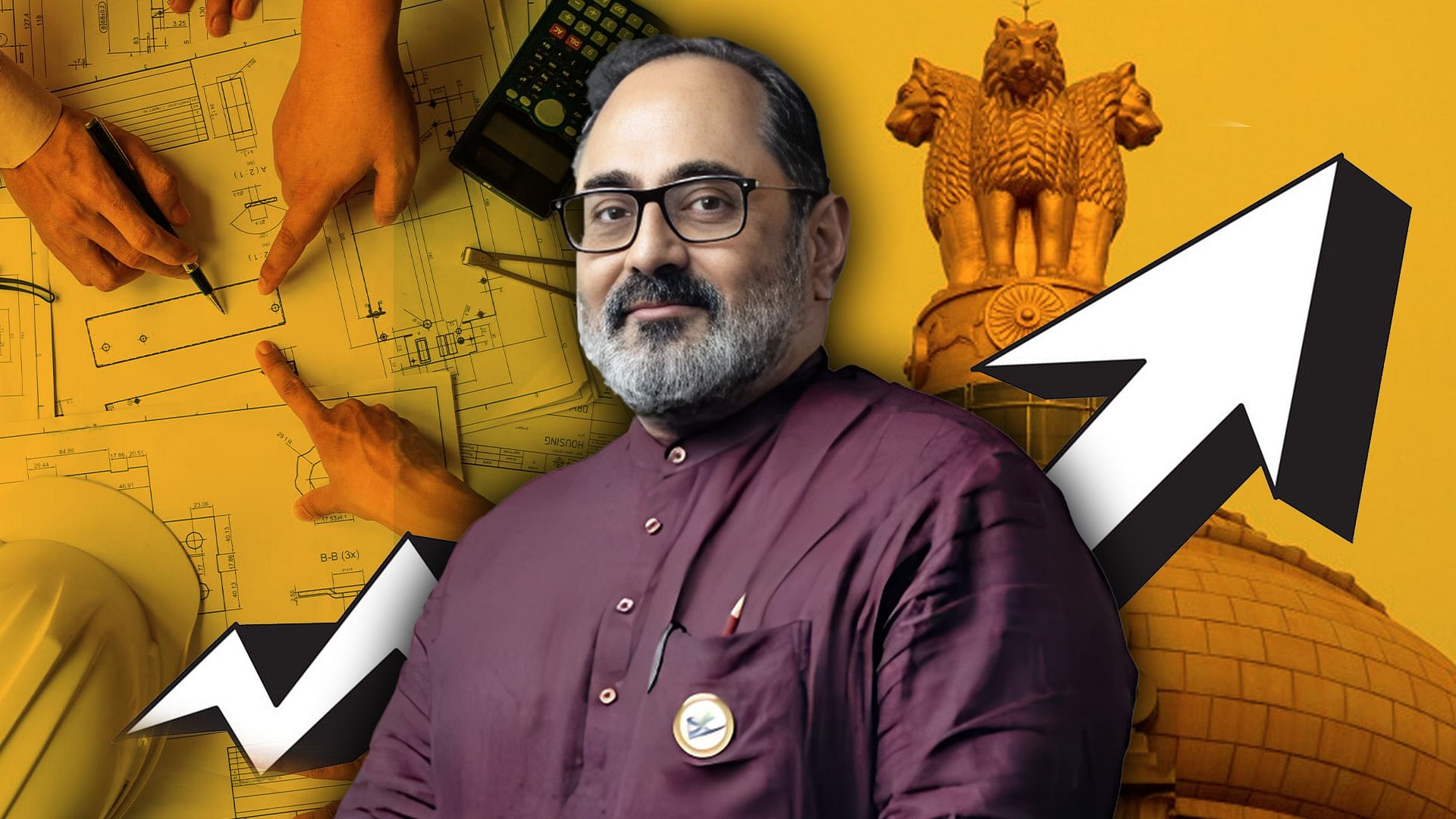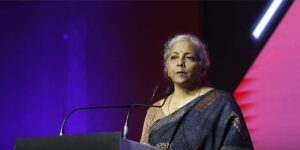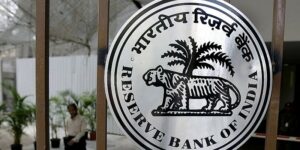- You don’t need influential backers or an abundance of wealth to succeed. All you need is deep conviction and confidence in your idea.
- You can prove naysayers wrong by action rather than words. Show them your true worth.
- Money is necessary for a certain level of security. But don’t make money the meaning of life.
An illustrious family background, a recognisable surname, or imposing affluence. In the India of the 1980s and 1990s, these were thought to be the defining criteria for succeeding in business. Rajeev Chandrasekhar did not check any of these boxes; he was gifted, but, with a special something. Guided by intuition and the determination to jump at any opportunity presented to him has moulded Rajeev Chandrasekhar into the man that he is now. An engineer turned entrepreneur who pivoted to politics, he is an example of the transformative powers of grit and resilience.
He started off as an engineer in India, quit his job to pursue higher education in the US, joined Intel, and eventually came back to India to become an entrepreneur. His transition to politics opened up new possibilities to reshape technology policy, a sector that he is deeply passionate about.
“I have never followed patterns or conventions. It was epiphany and determination that brought me where I am today,” he says in an interview with YourStory.
His story is one of courage, determination, defying societal norms, treading uncharted waters, and knowing the opportune time to exit. Rajeev Chandrasekhar, Minister of State for Electronics and IT, Skill Development and Entrepreneurship may have donned many hats, but today he is most content in his avatar as a public servant.
Bitten by the entrepreneurial bug
As the son of an air force pilot, Chandrasekhar spent his childhood in the 1960s and 1970s travelling the length and breadth of his country and experiencing different cultures. After he graduated in 1981, he found employment at Softech, a Delhi-based IT startup, at a time when startups were unheard of. His monthly salary: Rs 1,700. But his father wanted him to have larger aspirations and nudged him to pursue higher education in the US.
Remember, this was the 1980s when scholarships were far and few. Chandrasekhar had missed out on the first semester already because he applied late. The minister emotionally recalls the moment when his father withdrew his entire savings of Rs 8 lakh and handed it to him. His father had decided to bet on him.
“Imagine, my father was ready to part with whatever he saved during his 35 years of service. That reminded me of the strength of the traditional Indian family system, something that you will rarely find in the West. I never touched that money, but made a promise to myself to save Rs 10 lakh by the age of 30,” he says. The minister was 21 then.
He pursued a Master’s degree in computer science at Illinois Institute of Chicago and joined Intel. As a design engineer at the chip company, the minister was part of a 30-member team that designed the i486 microprocessor chip in 1988.
But three years later, when he returned home to get married, he was fascinated by the promise of India and decided he didn’t want to leave and wanted to participate in nation-building. It was 1991 when the government started discussions about cell phones. Chandrasekhar had never used a mobile phone before, but he knew the difficulties of making a phone call. He had struggled to hear the voices of his loved ones when he was in the US.
In 1994, he founded BPL Mobile. A trailblazer in a period where startups were an alien term and funding avenues were nonexistent.
The minister grew and scaled BPL to a level that it was counted among India’s largest mobile operators. When BPL Mobile turned unicorn, Chandrasekhar realised he could now hand the company over to others and let his baby find its own feet.
Embracing challenging opportunities is what the minister is adept at, but he also has the foresight to walk away from unfruitful situations. A case in point is when he sold BPL Mobile to Hutchison (now called Vodafone Idea after a series of mergers) for nearly $1 billion in 2005.
“I distinctly remember this journalist who prodded me about my early exit from the telecom sector, especially since it was estimated to grow to $5 billion. But I was very clear that I neither had the ability nor the interest in lobbying for the telecom spectrum in New Delhi,” he says.
Call it disinterest or pure instinct, but just two years after the minister’s exit from BPL, the 2G spectrum auctions began. The auctions involved aggressive bidding for such an event that it invited criticism from the supreme audit body of the country.
This incident also invoked a realisation about money. “Money should give you a certain sense of security and fallback but it should not become the meaning of life,” he says.
Politics comes calling
For Rajeev Chandrasekhar, the country comes first. Having lived and worked in the West, he was aware of the preconceived notions attached to India. He wanted to break those myths. He wanted to be in the system and rebuild it.
That nudged entrepreneur Rajeev Chandrasekhar to pay serious attention to politics. So when he received an opportunity to take the plunge, he did. In 2006, he was elected to the Rajya Sabha, representing Urban Bengaluru. But the switch to politics wasn’t a bed of roses either.
“On the day of my oath-taking ceremony, I heard two senior politicians comment ‘Look, there is another businessman who has entered the Rajya Sabha.’ They must have thought that I paid my way through it. But that didn’t deter my motivation. In fact, it reinforced my commitment to public service. I wanted to prove them wrong,” the minister says.
“I want to make a meaningful contribution to the vision of a new India. As a union minister, I have the opportunity to do so, which I did not have before 2021,” says Chandrasekhar
Now, even as his responsibilities as a Parliamentarian take centre stage, Rajeev Chandrasekhar hasn’t lost touch with his entrepreneurial side. He is the founder of Jupiter Capital, a private equity and debt investment firm that backs technology and allied sector startups. Cognizant of his ministerial duties, Rajeev Chandrasekhar has handed over Jupiter’s investment portfolio to a leadership team.
Life comes full circle
India is the world’s fifth-largest economy and Chandrasekhar has had a front-row seat to this development.
“We have distanced ourselves from the narrative that India is a land of poor people. The world made the mistake of backing China and now we notice a shift in the mindset. I am glad that we are bouncing back with an unprecedented amount of energy to regain our past glory,” he says.
“We as a country are bouncing back with an unprecedented amount of energy and confidence,” he stated
Tasked with revolutionising the country’s technology landscape, a fair amount of decision-making rests on Chandrasekhar’s policy-making abilities. He is currently involved in amending the 22-year-old IT Act to make it conducive to Digital India’s ambitions. Simultaneously, the minister is also campaigning for the Karnataka elections. A lot is at stake, but he has been there, done that.
Rajeev Chandrasekhar takes pride in the fact that his bootstrapped career has served as a beacon of hope for young entrepreneurs faced with daunting tasks.
“My journey can serve as an example for today’s entrepreneurs. You don’t need to belong to a certain background as long as you have self-belief,” the minister says
“You don’t need to belong to an illustrious family as long as you have self-belief. Deep conviction and confidence in your idea is all that matters,” he adds.
It’s how India has been built over the centuries. A belief in yourself and a determination to work harder than most.










